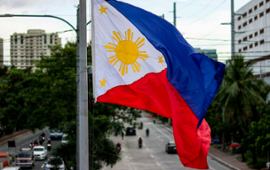Summary
- The Philippine Central Bank is putting the finishing touches on new protective measures designed to impose time and transaction limits on gambling.
- These actions aim to strengthen player safety at a pivotal moment when online gambling is facing intense scrutiny from society and politics.
- Pushing regulatory boundaries too far can backfire, missing its true goal.
The Philippine Central Bank is taking decisive action to strengthen security and improve consumer protection in online gambling transactions.
Philippine Central Bank moves forward with new player protection rules
The newest measures aim to proactively prevent unregulated gambling sites from targeting consumers. While the bank is still ironing out the specifics, the plan includes enforcing more robust safeguards, which all financial service providers must follow. Proposed actions include identity verification and setting daily limits through biometric checks like facial recognition, ensuring only those who qualify can gamble within the country. Moreover, financial institutions will have a responsibility to confirm that individuals signing up for gambling use their own money and can afford to do so. In response, the Central Bank plans to introduce daily limits on the amounts transferred for gambling and implement time-based restrictions on gambling transactions. A main goal is to empower players with control and freedom over their gambling habits. To achieve this, the bank is also advocating for tools that allow players to set their own spending limits, self-exclude from gambling, or take mandatory breaks during their sessions. The Philippine Central Bank’s mission is clear: it seeks to create a safe environment where players feel protected and have peace of mind. This initiative emerges as calls grow within the Philippines to completely ban online gambling.
Introducing reliable measures to keep black market operations at bay
The controversy surrounding the 34 missing cockfighters doesn't do any favors for those trying to maintain the political clout needed to keep gambling alive. Still, there's a silver lining: only a small portion of Filipinos are genuinely pushing for a full ban. Most people understand the simple truth: gambling will continue, regardless of who is in charge.





























